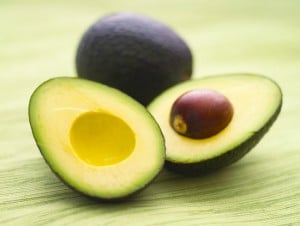By Anthoney J. Andersen – Steroidal.com
In a country where the increasing commercialization of trendy diets continues to rise like the unstoppable behemoths that they are, be sure to take the time to research and discover new ways to achieve your desired weight, while maintaining proper health.
Certain foods will not only help you manage your weight, but they will also provide your body with the essential nutrients it needs to function at a rate that caters to your lifestyle – while improving your overall well-being.
One food in particular stands out amongst the colossal wave of sustenance, and that food is the oh-so-delicious avocado.
THE BREAKDOWN
The avocado has been known to be a nutritional powerhouse among fruits. Referred to by many as the ‘alligator pear,’ because of its shape, green skin, and rough texture – avocados have become a beloved delicacy.
Its creamy texture and rich taste has made it a customary ingredient in many dishes.
Avocados have been most famously recognized as the main ingredient in the Mexican dip ‘guacamole’.
However, speculation continues to swirl around this popular fruit, mainly because of its high fat content.
So, the question remains: if avocados are high in fat, how can they be beneficial to your diet?
Let’s investigate.
HEALTHY FATS
According to Medicalnewstoday.com, fats account for around three quarters of the calorie count of an avocado. The majority of it is monounsaturated fat, in the form of oleic acid.
When consumed in moderation, monounsaturated fats can be extremely beneficial to your health, especially when they’re used as a substitute for saturated fat and trans fat.
Monounsaturated fats can help reduce bad cholesterol levels (LDL) in your blood, which can reduce the risk of heart disease and stroke.
Oils that are flushed with monounsaturated fats also contribute vitamin E to the diet – an antioxidant that most Americans don’t receive enough of.
According to Fitday.com, avocados can be a vital nutrient in helping maintain proper functioning of your digestive tract. This is because avocados pack quite a punch in the fiber department.
A typical avocado can contain both insoluble and soluble fiber – that alone makes the avocado a powerful commodity, because not many foods are known to harvest both types of fiber.
According to WebMD, soluble fiber attracts water and forms a gel, which slows down digestion. Soluble fiber hinders the emptying of your stomach, which makes you feel ‘fuller’ longer. By doing this, it also helps manage your weight.
Sources of soluble fiber include oatmeal, lentils, apples, oranges, pears, oat bran, strawberries, blueberries, nuts, flaxseeds and beans.
Insoluble fiber has been coined as being the ‘gut-healthy fiber,’ due to the fact that it acts like a laxative and adds bulk to your diet. This can help prevent constipation.
These fibers do not dissolve in water, so they pass through the gastrointestinal tract intact, which helps increase the passage of food and waste through your gut.
Sources of insoluble fiber include whole wheat, whole grains, wheat bran, corn bran, raisins, grapes, cucumbers, tomatoes, carrots, brown rice and broccoli.
An average avocado is approximately 75 percent insoluble fiber and 25 percent soluble fiber.
VITAMINS
Vitamin intake is an organic part of maintaining proper health. Most people tend to be deficient when it comes to consuming the recommended daily values of essential vitamins and minerals.
The vitamins that can be found in an avocado are B vitamins, vitamin K and vitamin E.
According to Wholeliving.com, B vitamins have been known to ease stress, boost energy, treat anxiety and depression, aid memory, relieve PMS and reduce the risk of heart disease.
Vitamin K plays a key role in helping the blood clot, which staves off excessive bleeding.
Vitamin E is fundamental in helping your body build a strong immune system and healthy skin and eyes.
PREVENT BIRTH DEFECTS
Avocados are rich in folate – a B vitamin commonly known as folic acid. One cup of avocado provides about 23 percent of the recommended daily value of folate.
The high amount of folate can help reduce the chances of certain birth defects like neural tube defect – birth defects of the brain, spine, or spinal cord – and spina bifida.
MANAGE BLOOD PRESSURE
Avocados are also a great source of potassium – which helps in controlling blood pressure levels.
Low potassium levels can cause serious health effects, including high blood pressure, risk of heart disease, stroke, arthritis, cancer, digestive disorders and infertility.
CONCLUSION
Even though avocados tend to be high in fat, just remember that they contain the ‘healthy fats’.
Now, that’s not to say you should go ahead and consume 10 or 20 avocados a day, it simply means that – when taken in moderation – the ‘bad’ can sometimes be good.
Remain healthy.








